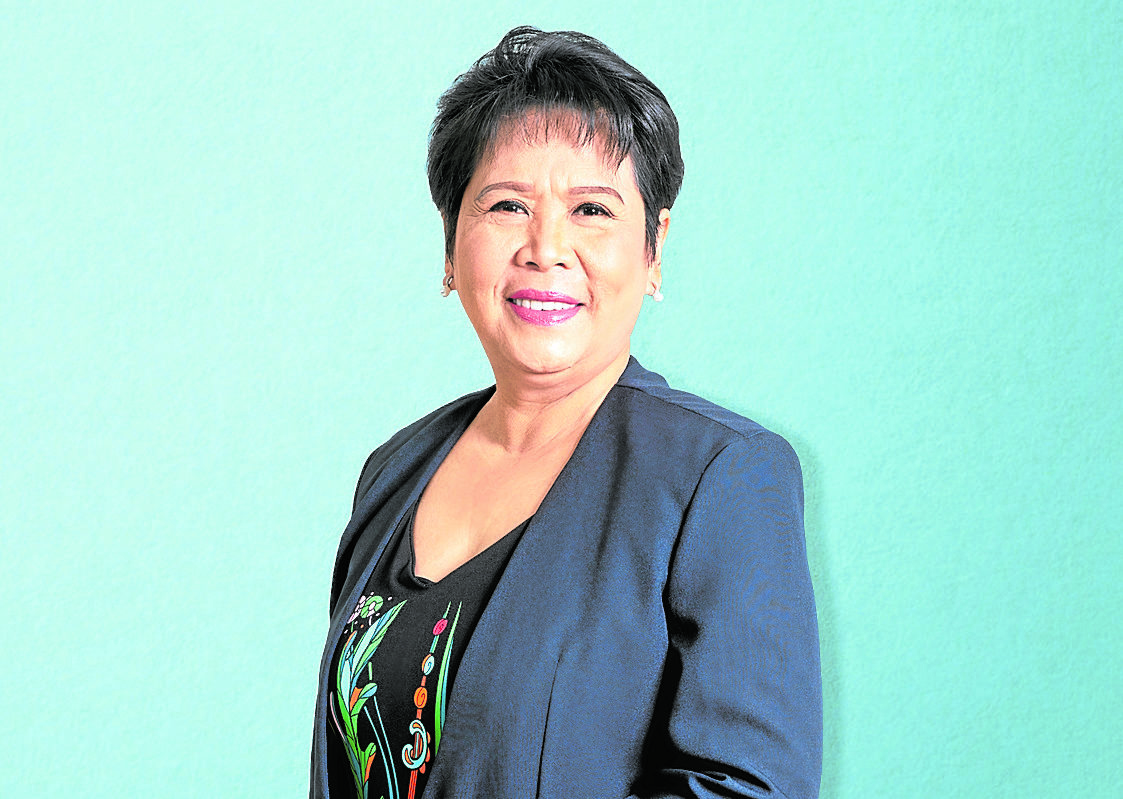Fe Barino of Liloan-based Duros Group did not leave employees, communities behind

LILOAN, CEBU—At a time of unprecedented disruptions on the country’s economic and health systems brought about by the COVID-19 pandemic, one chief executive went beyond just ensuring the survival of her companies.
Fe Barino also looked into the welfare of her employees as well as the people in communities that needed help.
“I am just in a position to be a catalyst,” said Barino, president of the Duros Group of Companies (DGC), a Liloan-based conglomerate composed of 11 companies that range from construction, real estate, trading to education.
Not that her group was spared from the crisis that started in 2020.
She recalled that they had to temporarily stop operations during the lockdown last year that was imposed by local officials to contain the spread of the new coronavirus.
But even then, the company gathered resources to extend financial assistance and bags of rice to their more than 1,000 employees.
Realizing that they didn’t know how long the lockdown would last, Barino said they decided to retire a number of their employees and give them severance packages based on their length of service, so they had money to tide them over.
A month after restrictions started easing, Barino said they started rehiring employees starting with their construction company—Duros Development Corp.—which is the largest in Cebu. Their work had resumed since most of their projects were outside Cebu City, which was considered the epicenter.
But even during the lockdown when many of their construction workers were stranded in their bunkhouse in Liloan, Barino thought of something productive for them: training on values formation and life skills.

Multiple skills training
Under the Duros Academy Center, the workers underwent multiple skills training aside from values formation that included spiritual and character building.
The skills training focused on what were needed in construction—masonry, plumbing, electrical, carpentry among them—so the workers would have two or more skills.
Each batch consisted of 10 to 20 participants.
After the two-month in-house training, the workers then went to the construction site for an on-the-job training for four months.
They later extended their training program to other people, including recovering addicts, who wanted to work in construction.
Barino was the force behind Surrender to God (SuGod), a 10-day community-based drug recovery and renewal program that combines scientific, educational and spiritual elements in a nonthreatening and loving environment that will encourage former drug users to start living a clean life.
Since the SuGod program started in August 2016, it has helped hundreds of individuals who chose to live their lives free from the bondage of illegal drug use.
According to Barino, their training program has already produced about 80 graduates who were given priority in hiring at the Duros Development Corp.
Barino, chair of the Commission on the Laity of the Cebu Archdiocese, was also involved in feeding programs in communities that had been put on lockdown due to the pandemic.
2,000 children
They distributed hygiene kits, food packs and sacks of rice at the Cebu City jail as well as in Barangays Luz and Alaska-Mambaling.
Their feeding program in Alaskas Mambaling was the longest—four months—as the village was placed on lockdown from April to July due to high cases of COVID-19.
Barino said they set up four feeding stations in Alaska-Mambaling and fed about 2,000 children daily.
While other businesses are struggling, only 30 percent of the companies under DGC have been affected by the pandemic.
This is due to the fact that most of their businesses and projects are outside Cebu City.
Work unaffected
Barino said most of their construction projects are in the towns, so work had not been affected but they have to strictly comply with the safety protocols.Their trading, agro-business and food businesses have reopened and are slowly recovering after quarantine restrictions were loosened.
Their school, Divine Life Institute of Cebu—based here in Liloan, has the same number of enrollees as they immediately adopted online learning.
Their real estate arm was partly affected but it was only limited to their condominium units in Cebu City where some owners returned their units because they could no longer pay.
But their projects outside Cebu City are doing very well, Barino said.
“People are looking for properties they can relocate to or invest in in the province,” she said.
Their construction arm is also doing well—completing existing projects and accepted new ones.
Their secret to staying afloat amid the global health crisis: They don’t let themselves get affected by the pandemic.
“In fact, we are very aggressive now. We have never stopped creating new products, new projects,” she said.
Article and Photo originally posted by Inquirer last March 7, 2021 5:20am and written by Connie Fernandez-Brojan.







More Stories
Vista Land Celebrates 50 Years with Sandiwa: An Event Honoring Leadership, Legacy, and the Filipino Dream of Homeownership
Vista Land Celebrates Love Month in Ilocos Region
Vista Land Bridges Cebuano Heritage and Progress with Valencia by Vista Estates